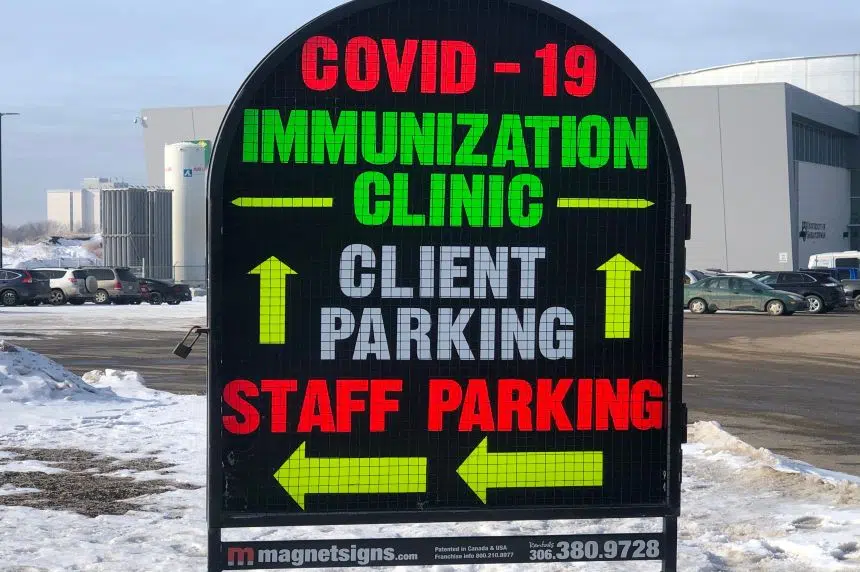Saskatchewan is joining the provincial “bandwagon” of delaying the second doses of COVID-19 vaccines.
That’s what Andrew Potter, the former CEO of VIDO InterVac, tweeted just a couple of days ago — and it makes him uneasy.
On Tuesday, chief medical health officer Dr. Saqib Shahab announced the province may move to delay second vaccine doses for up to four months.
That’s after information from other provinces like B.C. and Quebec and countries including the United Kingdom and Israel suggested doing so would still give a reasonable amount of protection from the virus, and would allow the health authority to get at least one dose into everyone who wants or needs it much sooner.
“What that will do is that will really accelerate our first dose program,” Shahab said during a media conference. “And if we are able to do that, we can see most of our population 18 and older potentially getting a first dose by June. I think that would really help us in putting the pandemic behind us.”
The province is expected to announce it has made the decision to move to the four-month separation of doses during a media conference Thursday. It can be heard live here.
Potter, now a professor of veterinary medical biology at the University of Saskatchewan, says he’s a bit uncomfortable with the plan to potentially delay those second doses for a couple of reasons, including that the strategy it has not been recommended by the vaccine manufacturers themselves.
“Second is that we don’t know exactly what happens following a single dose of the vaccine with respect to the variants, the COVID variants, that are out there,” he said. “Do you see the same level of protection, for example?”
Having said that, Potter appreciates what the provincial government is trying to do, but says more needs to be done.
“What I would like to see them do is do it within the context of something like a clinical trial so that they can actually get answers out of it as opposed to simply immunizing a bunch of people. What you don’t want is a population in the province that have sub-optimal immunity as opposed to a smaller population with full immunity,” he said.
Potter said the provincial government could set up groups that get the vaccines as recommended along with groups that get the vaccine doses four months apart and then compare them. Grouping people by age could also be part of that.
“It’s not really difficult to do …,” he said. “The only people that can do that right now are governments. Normally, you would see universities become involved in that kind of trial for other vaccines. That’s not going to happen because nobody can get the vaccine other than the government.”
He added there’s a lot we don’t know about the vaccines, like how they work, for how long, and how well people are protected.
“The other thing that concerns me is that when you start playing with the interval between doses, it can have impacts on things like the duration of immunity,” he said. “So how long does that immune response actually last?
“What you don’t want to do is create a situation where, six months from now, you find that, ‘Oh gosh, we’ve got to vaccinate everybody again.’ ”
He doesn’t think it will happen — and suggests perhaps the opposite could occur — but he says the province should be setting itself up to get those answers as the vaccination program moves along instead of going on what he calls “a hope and a prayer.”







